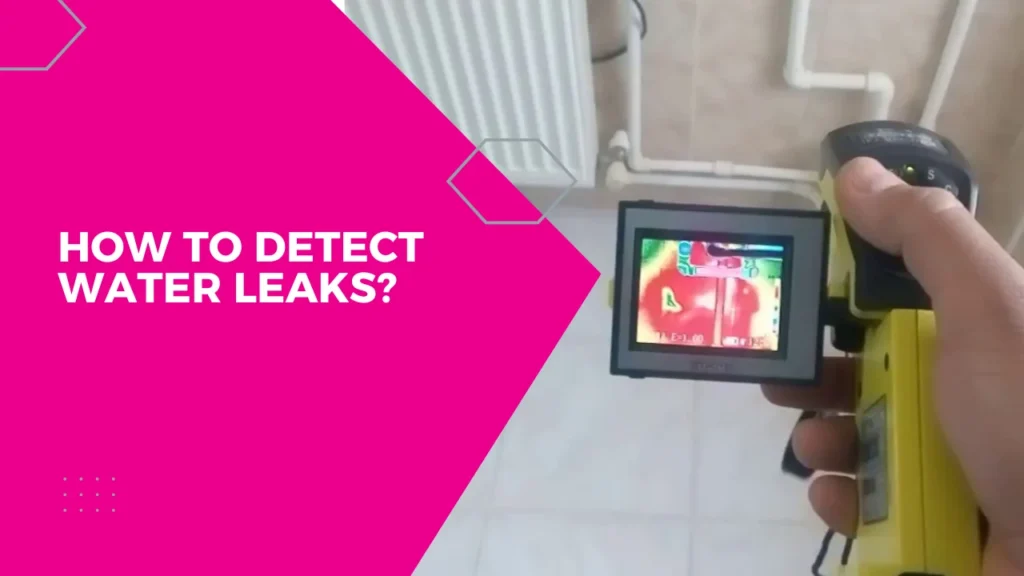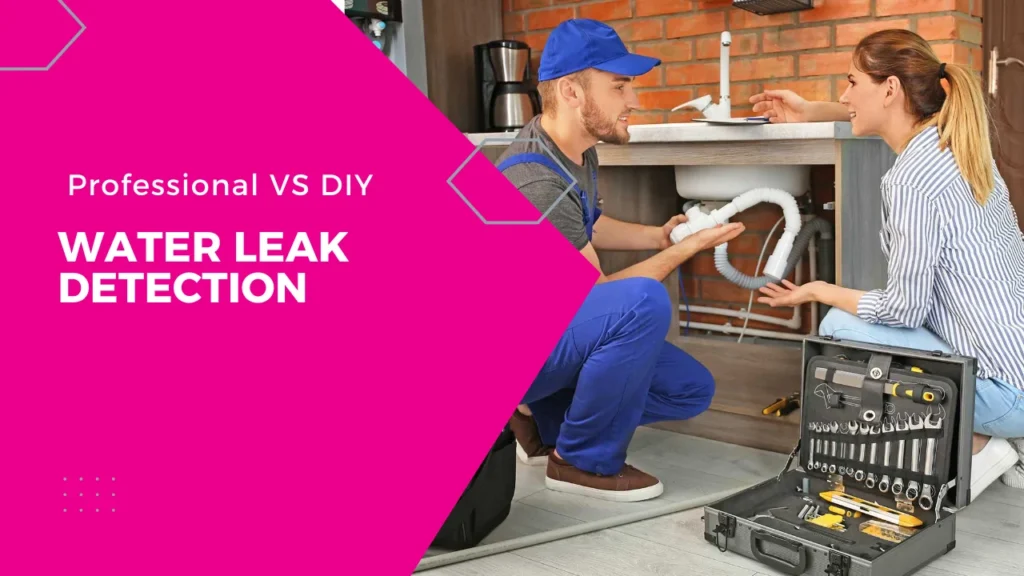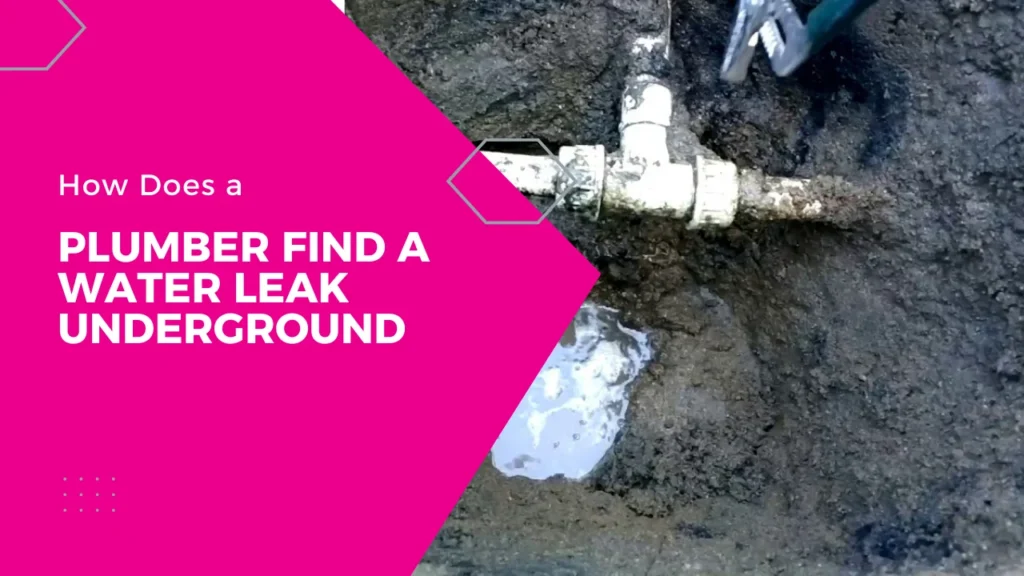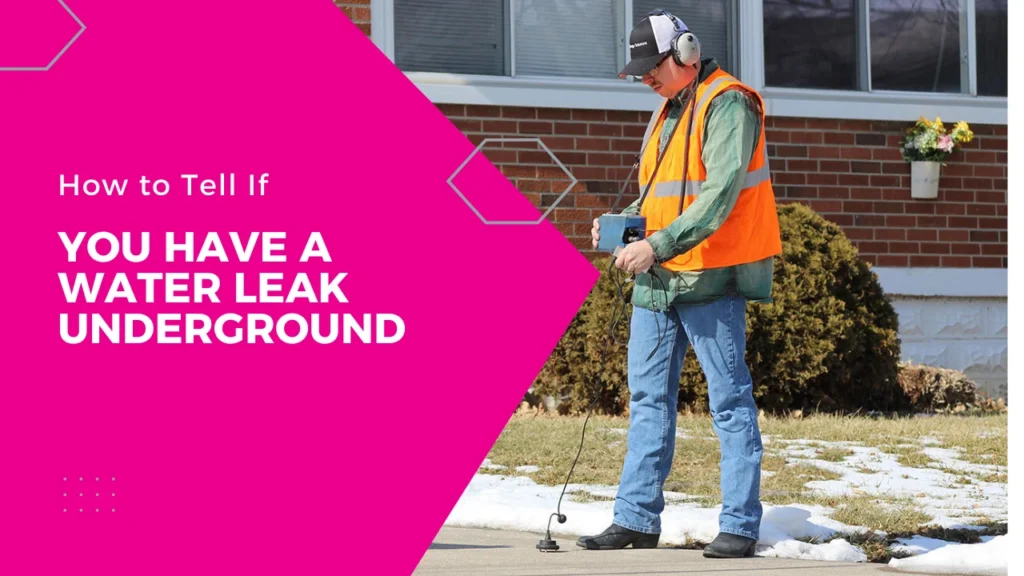Water leaks can be a homeowners nightmare causing damage to property and leading to costly repairs if left undetected. Detecting water leaks early is crucial to preventing extensive damage. This blog will discuss various methods to detect water leaks in your home or business. From visual inspections to using advanced leak detection devices these tips and techniques will help you identify leaks promptly allowing you to take necessary action before the situation worsens. Let’s dive into water leak detection and learn how to protect your property from water damage.
How can I detect water leak detection at Home?
You can start the water leak detection by checking your water meter to detect water leaks at home. Turn off all water sources and note the meter reading. Wait a few hours without using any water then check the meter again. If the reading has changed you likely leak. The more points you have in detail as explained above:
1. Check Your Water Meter:
Begin by turning off all water sources in your home, including faucets, appliances and irrigation systems. Take note of the meter reading and wait a few hours without using any water. Check the meter again. If the reading has changed it indicates a possible leak in your plumbing system that needs to be investigated and repaired.
2. Inspect Faucets and Fixtures:
Examine all faucets shower heads and toilets for visible signs of leaks such as dripping or pooling water. Even a small continuous drip can waste significant water over time. Repairing these leaks promptly can save money on water bills and prevent water wastage.
3. Inspect Pipes:
Check all visible pipes, including those under sinks and behind appliances, for signs of leaks. Look for water stains, mold, or mildew, as these can indicate a hidden leak that requires immediate attention to prevent further damage. Find a Water Leak Underground by hiring a professional plumber, as they can accurately locate and resolve the issue efficiently.
4. Use a Water Leak Detector:
Installing a water leak detector can help you detect leaks early by monitoring changes in moisture levels. These devices are particularly useful near water using appliances like washing machines, dishwashers and water heaters where leaks are more likely to occur.
5. Monitor Your Water Usage:
Keep an eye on your water bill for any sudden increases in water usage without a corresponding increase. This could be a sign of a hidden leak that needs to be located and repaired.
6. Check Your Water Heater
Inspect your water heater for signs of leaks such as water pooling around the base or rust and corrosion on the tank. Addressing these issues promptly can prevent further damage to your water heater and save you money on repairs.
7. Outdoor Inspection
Finally inspect outdoor faucets hoses and irrigation systems for leaks. Look for dripping faucets leaking hoses and pooling water around irrigation systems as these can indicate leaks that need to be fixed to conserve water and prevent water damage.
Ensure Property Safety & Longevity
Detecting water leaks early is essential for maintaining your home’s or business’s integrity and avoiding costly water leak detection services and repairs. Remember to conduct regular inspections monitor your water usage and take immediate action if you suspect a leak. Water leak detection may seem daunting but with the right knowledge and tools you can effectively manage and prevent leaks ensuring your property’s safety and longevity. Contact Priscilla’s Plumbing for the best Plumbing Services.
FAQs
How can I prevent water leaks in my home?
Regularly inspecting your plumbing, fixing leaks promptly and maintaining your appliances can help prevent water leaks.
What should I do if I discover a water leak?
Shut off the water supply, clean up any standing water and contact a professional plumber to repair the leak.
Are there any warning signs of a hidden water leak?
Yes, some signs include a musty odor, mold growth or a sudden decrease in water pressure.




